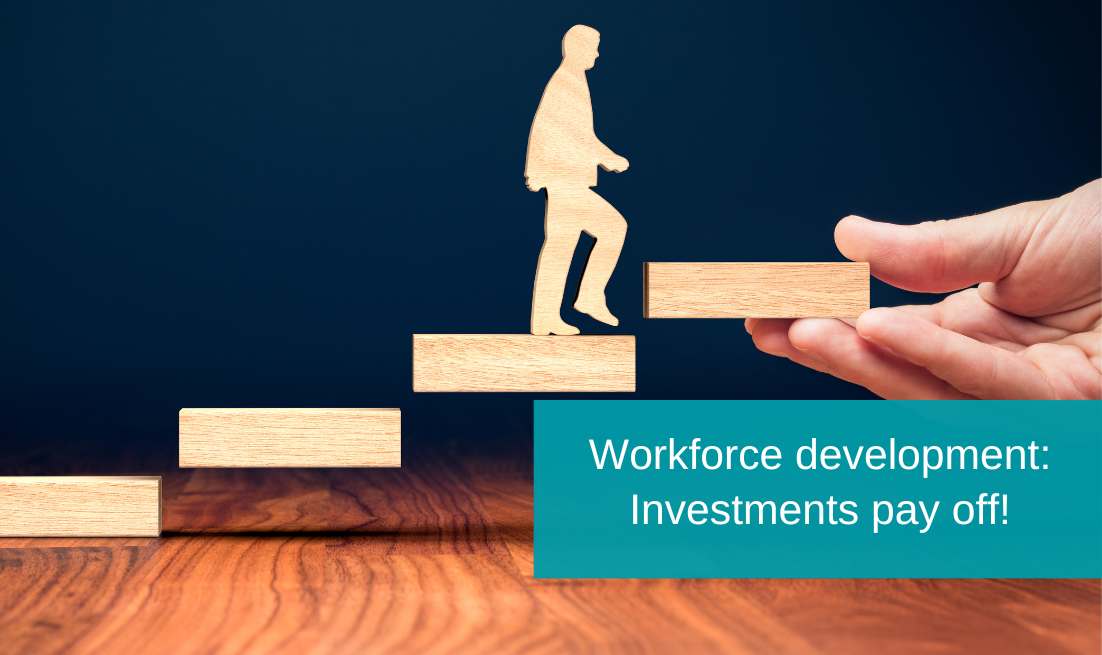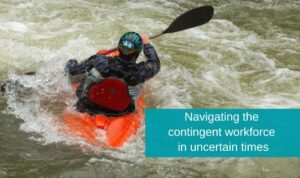During these times of scarcity, the focus on workforce development increases and organisations invest more time and money in improving in this area. But what is workforce development in essence, what are important prerequisites, what does it look like and what is the impact on your recruitment? Workforce development refers to the process of enhancing the skills, knowledge, and competencies of employees within an organisation to improve their productivity, job satisfaction, and overall job performance. The prerequisites for effective workforce development include:
- Assessing the current skills and knowledge of the workforce: This is the first step in the workforce development process. Organisations need to evaluate the current skills and knowledge of their employees to identify skill gaps and areas that require improvement. This can be done through employee evaluations, surveys, focus groups, or other assessment methods.
- Developing a training plan: Once the skill gaps have been identified, a training plan should be developed. The plan should outline the goals of the training program, the methods and resources that will be used, and the timeline for implementation. The training plan should be aligned with the organisation’s goals and objectives.
- Providing access to training resources: Employees need access to training resources to enhance their learning. This can include books, online courses, workshops, and other learning materials. Organisations can also provide opportunities for employees to attend conferences, seminars, and networking events.
- Measuring progress: It is important to measure the progress of the workforce development program to determine its effectiveness. This can be done through performance evaluations, surveys, and other assessment methods. Measuring progress allows organisations to make adjustments to the program as needed to ensure that it is meeting its goals.
What does Workforce Development look like?
Workforce development can take many forms, below a few practical examples:
- On-the-job training: Employees learn new skills and knowledge while performing their regular job duties.
- Mentorship programs: Experienced employees mentor and coach new or less experienced employees.
- Online learning: Employees can access training and learning resources online, such as videos, e-learning modules, and webinars.
- Leadership development: Programs designed to develop leadership skills for employees at all levels.
- Team building: Activities designed to build teamwork and collaboration among employees.
- Cross-functional training: Employees receive training in areas outside of their job duties to enhance their knowledge and skills.
Impact on the recruitment department:
The impact of workforce development on the recruitment department can be significant. An effective workforce development program will attract more qualified candidates who are interested in working for a company that invests in the development of its employees. This will help to reduce the cost and time associated with recruitment.
Additionally, a focus on employee development will increase employee retention rates. When employees feel that their employer values their development and invests in their growth, they are more likely to stay with the organisation long-term. This reduces the need for frequent hiring and saves recruiting costs.
Overall, an effective workforce development program will help to create a more skilled and engaged workforce, leading to increased productivity and profitability for the organisation. It will also enhance the employer brand and attract top talent, which can benefit the recruitment department in the long run.
 About the author
About the author
Eugene van Berkel is Managing Partner at TalentIn. With his expertise he helps organisations build and execute their workforce strategy, making sure that what is designed can be implemented.
TalentIn has extensive national and international experience in developing and improving strategies for the recruitment of your permanent and temporary staff. We know how these strategies can be designed and implemented successfully. We advise, but can also provide practical support. Are you interested? Please contact us for an appointment without obligation via www.talentin.eu, info@talentin.eu or +31 10 307 54 22





